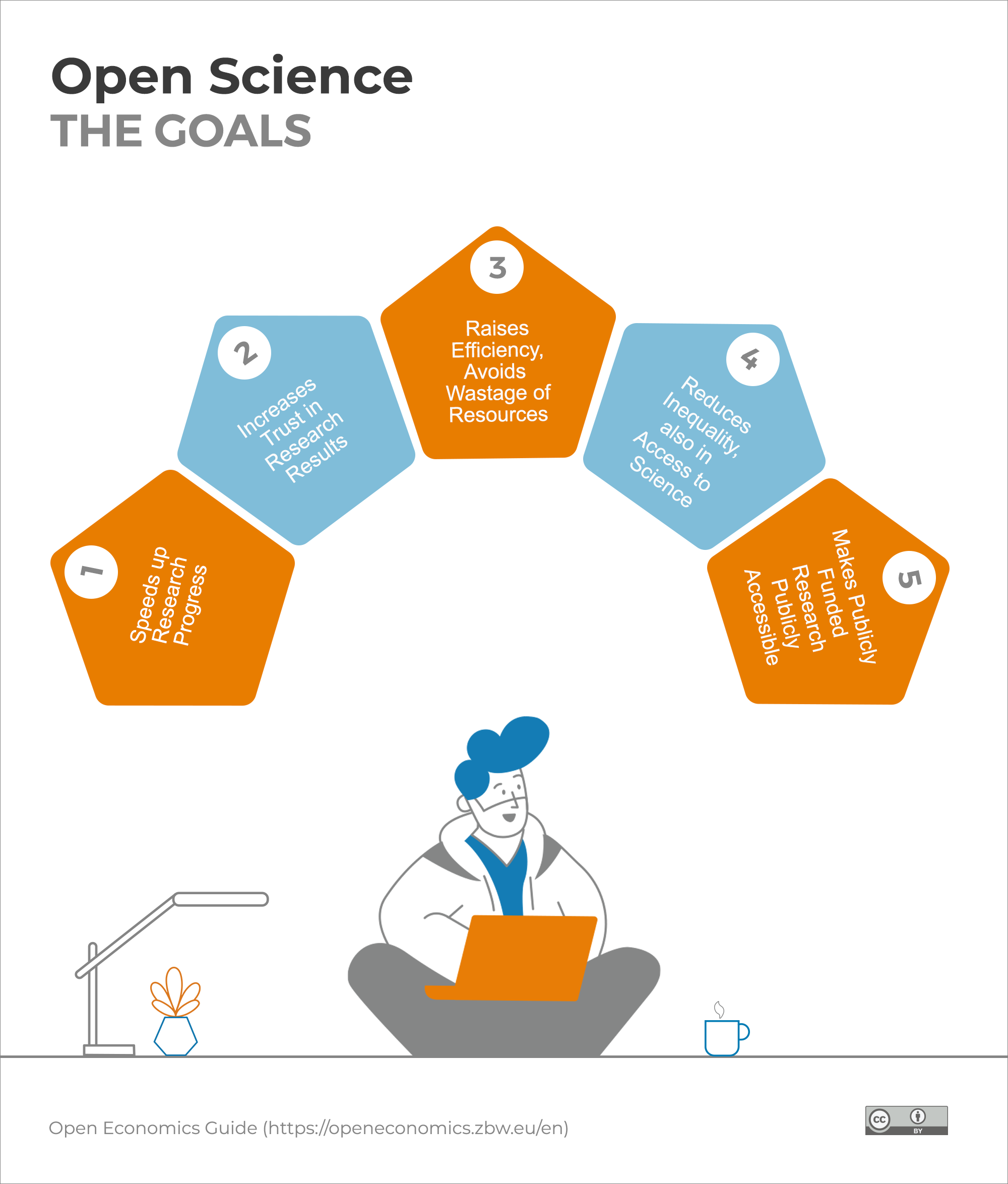Goals of Open Science
Open Science is not an end in itself, but pursues the following goals while also addressing current problems in science:
- Accelerate research progress: Open Science aims to improve and accelerate research through increased transparency and better access to scientific knowledge. Faster knowledge transfer through Open Science can also lead to more collaboration and innovation in the economy and the society, thus helping to answer complex research questions more quickly.
- Improve verifiability of research quality and increase trust: The use of Open Practices does not automatically increase the quality of research. But access to research results as well as methods, programme codes and research data used facilitates the assessment of research quality and also enables the establishment of new quality standards.
- Avoiding waste of resources: Open Science is intended to increase the efficiency of research work, for example through better reusability and the avoidance of duplication. Thus, it has positive economic effects. In addition, Open Science contributes to the reduction of publication costs.
- Reduce inequality, including access to research: Open Science promotes equal opportunities, for example, when research findings are also made accessible to researchers in developing countries and collaboration and the involvement of major parts of society in science are promoted. This also makes it easier to introduce new research questions and promote critical thinking and scientific literacy in society.
- Make publicly funded research publicly available: Open Science makes publicly funded research results openly accessible. Taxpayers get more value for their money. Open Science thus has a higher impact and leads to economic benefits.
Open Science thus pursues a large number of improvements for individual researchers, the entire science system and society.
